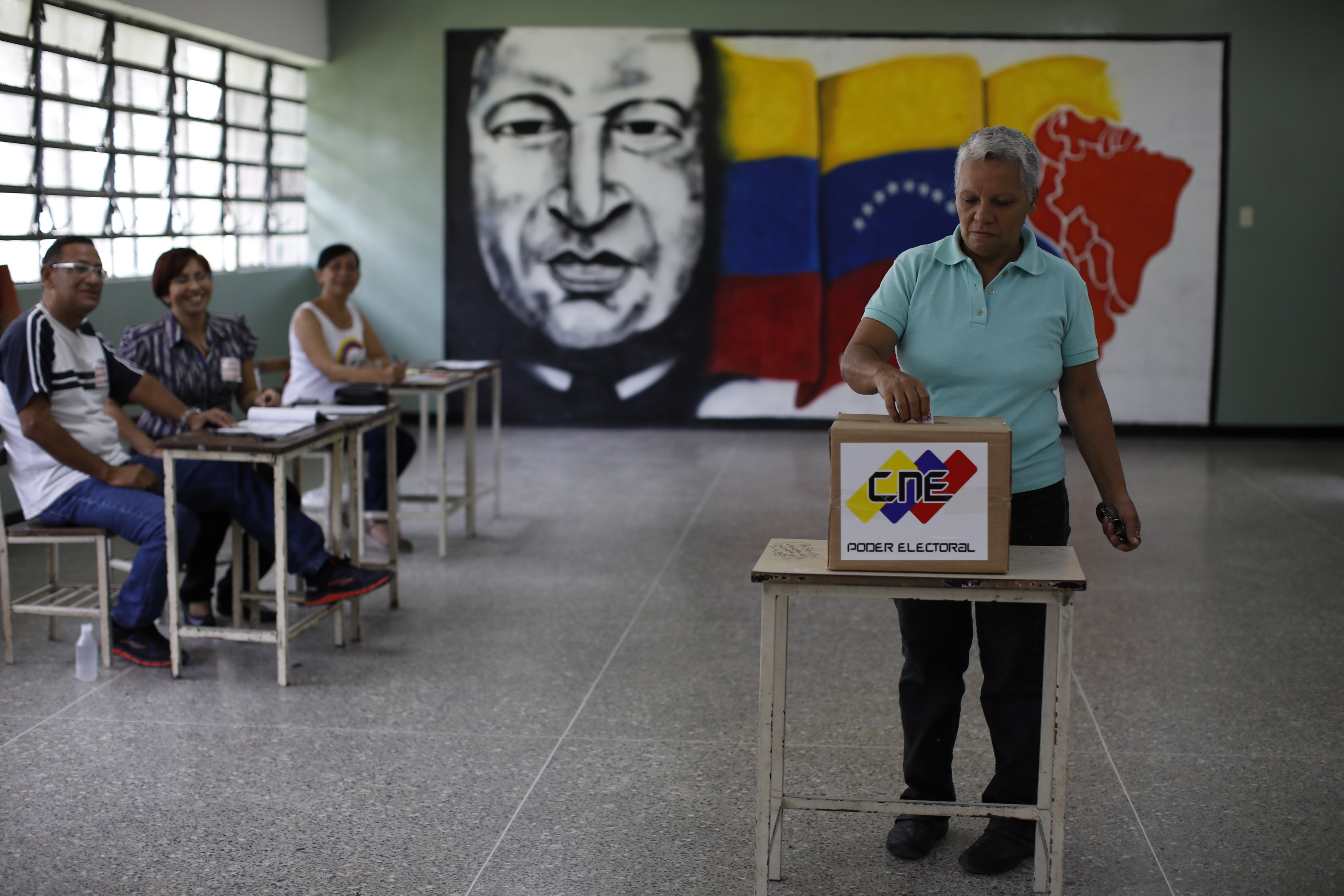
Caracas/Puerto Ordaz (Venezuela): Streets were deserted on Sunday as a minority of Venezuelans trickled to the polls to elect a constitutional super-body that unpopular leftist President Nicolas Maduro vowed would begin a new era of combat in the crisis-stricken nation. Maduro, widely disliked for overseeing an economic collapse during four years in office, has pressed ahead with the vote to create the all-powerful assembly despite the threat of further U.S. sanctions and months of opposition protests in which more than 115 people have been killed.
Opposition parties are boycotting what they call a rigged election.
Their sympathisers planned protests on highways across the South American country and scuffles were already reported in the provinces - raising the prospect of violent clashes with tens of thousands of troops deployed to safeguard the vote.
Authorities confirmed there were two deaths on Saturday, including the killing of a candidate to the assembly during a robbery, while the opposition put the total death toll in Saturday's protests at five.
Critics say the assembly will allow Maduro to dissolve the opposition-run Congress, delay future elections and rewrite electoral rules to prevent the socialists from being voted out of power in the once-prosperous OPEC nation.
The opposition has vowed to redouble its resistance and U.S. President Donald Trump has promised broader economic sanctions against Venezuela after the vote, suggesting the oil-rich nation's crisis is set to escalate.
"Even if they win today, this won't last long," said opposition supporter Berta Hernandez, a 60-year-old doctor, in a wealthy Caracas district.
"I'll continue on the streets because, not long from now, this will come to an end."
Undeterred, Maduro, a former bus driver and union leader narrowly elected in 2013, has accused right-wing governments of trying to sabotage "21st century Socialism."
"A new era of combat will begin. We're going all out with this constituent assembly," said Maduro, as he rapidly voted at 6 a.m. in a low-income area of the capital Caracas that has turned on the government.
With polls showing some 70 per cent of Venezuelans oppose the constituent assembly, Maduro's administration is hoping to avoid low turnout that would further undermine his legitimacy.
Venezuela's 2.8 million state employees are under huge pressure to vote - with some two dozen sources telling Reuters they were threatened with dismissal otherwise.
At state oil company Petroleos de Venezuela SA (PDVSA), workers received text messages asking them to send in their national identification number once they had voted, two sources said.
They expressed fear the plan was to identify who had sat out the election.
The electoral council has ordered journalists stay at least 500 meters (1,600 feet) from voting centers, a move the opposition says is designed to hide paltry turnout.
Fueling anger against Maduro is an unprecedented financial meltdown in the country of 32 million people, which was once a magnet for European migrants thanks to a booming economy that was the envy of Latin America.
But after nearly two decades of Socialist Party rule, currency and price controls have asphyxiated businesses.
Millions of Venezuelans now struggle to eat three times a day due to product shortages and runaway inflation that has put products like rice or flour out of reach.
Venezuelans rummaging through garbage or begging in front of bakeries are a common sight.
To show the massive scale of public anger, the opposition earlier this month organized an unofficial referendum over Maduro's plan.
A strong turnout of more than 7 million voters overwhelmingly rejected the constituent assembly and voted in favor of early general elections. But democratic pathways to political change have been systematically blocked.
The opposition's bid last year to hold a recall referendum against Maduro was nixed, regional elections have been postponed and the president has repeatedly ignored the opposition-led congress.
As global condemnation mounts, the United States last week sanctioned 13 Socialist Party leaders, in part as a response to the election, and neighboring Colombia has said it will not recognize the results of Sunday's vote.
Furious that Maduro is plowing ahead and fearful of what will come after Sunday, some opposition activists were trying to block the vote.
In the western state of Tachira, several hundred people on Saturday burned voting machines set up in two schools.
Some 50 voting centers in that state will not be in operation because demonstrators destroyed voting materials or prevented them from being set up in the first place, according to an opposition representative.
Government assembly candidate Felix Pineda, 39, was shot dead during a robbery at his home on Saturday night in the jungle state of Bolivar, the state prosecutor's office said.
A 38-year-old man was killed during a protest in the mountainous state of Merida on Saturday, the office added.
Enthusiasm was low even among many supporters of "Chavismo," the movement founded by late leader Hugo Chavez, Maduro's more charismatic predecessor who enjoyed high oil prices for much of his mandate.
"The people haven't been listened to. Only the top brass rules," said Mariela Infante, a community leader in Bolivar, as she shuttled people to vote.
"There are many people in power who are not revolutionaries in their heart, but those of us who are supporting this constituent assembly are from the people."
Voters do not have the choice of whether to proceed with the assembly, only to select its 545 members from more than 6,100 candidates representing a broad array of Socialist Party allies.
The assembly is due to sit within 72 hours of results being certified.
A significant portion of its seats are expected to go to government loyalists such as Socialist Party No. 2 Diosdado Cabello and Maduro's wife and son.